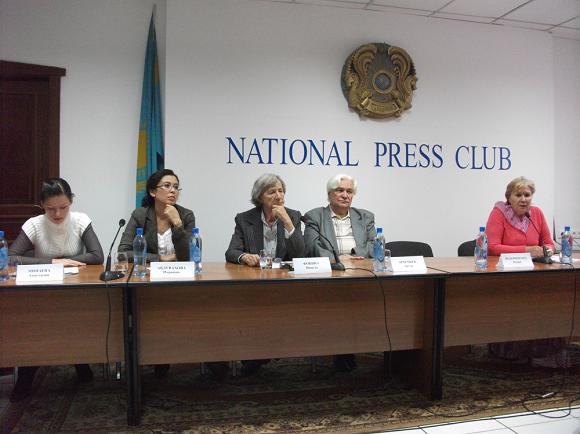The Norwegian Helsinki Committee (NHC) is concerned with the rapid passage as well as the restrictive nature of the new laws, says Bjørn Engesland, Secretary General of the NHC. – The way to prevent violent religious extremism is not to restrict freedom of religion. There are plenty of examples showing that undue restrictions are counterproductive in this regard.
– Without a thorough consultation process and provisions within the parameters of international standards, we fear that the laws will not contribute to building confidence on the way the government deals with religious pluralism. Rather there is a risk of more skepticism and frustration among moderate groups and better recruiting options for more radical groups, Engesland says.
The title of the new Religion Law, which replaces the 1992 Law on Freedom of Religious Confession and Religious Association, reads The Law on Religious Activity and Religious Associations. Its preamble points to the particular historic role of Orthodox Christianity and Hannafi Islam in Kazakhstan. The law:
– Requires that all religious groups re-register according to a complex four-tier system;
– Bans unregistered religious activity;
– Requires missionaries to re-register annually, including persons travelling to a neighboring oblast for talks with a sister congregation;
– Requires both central and local government approval to build or open new places of worship;
– Requires that all religious literature would have to go through thorough verification by the Agency for Religious Affairs in a practice that in practice equals to censorship.
The second law, The Law on introducing Amendments and Additions to several legal acts questions of Religious Activity and Religious Associations, amends nine other laws and legal provisions. In particular, amendments of the Article 375 of the Code of Administrative Offences and of the Law on the Rights of the Child could have far-reaching impact on freedom of religion or belief.
– The law does not only limit freedom of religion, but also related freedoms of assembly, association and expression, says Engesland. – We are concerned with the effects of this law if it enters into effect. They are not in compliance with OSCE commitments, which Kazakhstan as former Chair of the organization (in 2010) should do its outmost to respect. We therefore urge the President to use his Constitutional powers to return the law to the Parliament for a renewed, open and transparent discussion.
The President also has the option of asking the Constitutional Council to review the laws in order to determine their Constitutionality. Similar legislative packages were reviewed by the Constitutional Council in 2002 and in 2009, leading to rejections.
– Kazakhstan should also answer favorable to offers by the OSCE to provide legal assistance to ensure the new laws’ compliance with international human rights standards, says Engesland. Kazakhstan, like other countries struggling to find the proper balance in its legislation and practice between security concerns and fundamental freedoms can only benefit from such international assistance.
– It might be relevant to point to how many European countries on several occasions had to reform policies and legislation on freedom of religion and belief responding to criticism by UN, Council of Europe, or OSCE organs, concludes Engesland. Norway had to seriously reform education in religion in its public schools in order to respect the right of parents to decide on the religious education of their children, as was stated in decisions by the UN Human Rights Committee and the European Court of Human Rights. We believe it would benefit Kazakhstan enormously if it decided to enter into a genuine dialogue with civil society organizations, international organizations, as well as representatives of other countries to share experiences and viewpoints on best practices on freedom of religion or belief.
Background
The NHC has together with Norwegian and Kazakhstani partners monitored freedom of religion and belief in Kazakhstan during the last three years. In June 2010, a critical report was launched that describes the complicated situation. Freedom of religion issues has also been discussed in dialogue meetings with high level government representatives. NHC and the partners have in these meetings stressed the importance of meeting international standards by respecting the rights to have a religion of one’s own choice, and to be allowed to manifest this religion in worship, observance, practice and teaching.
In a press conference in Almaty 5 October 2011, the NHC together with the Almaty Helsinki Committee and regional experts expressed concern with the new law to a number of journalists.
Forum 18 News Service report: Two repressive new laws sent to President for Signature
